Haz clic aquÍ para leer en español
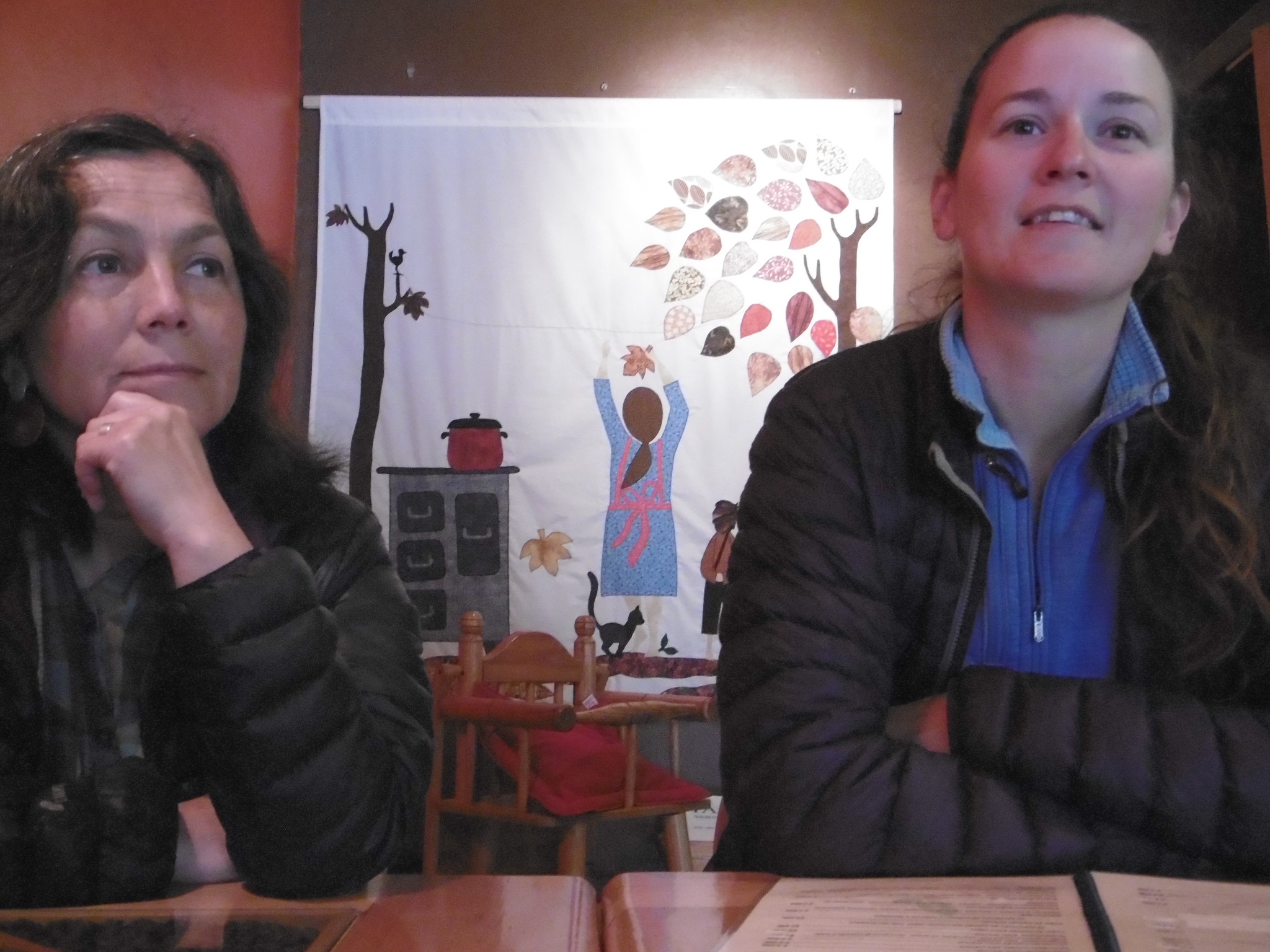 “When people ask me what I do, I say I am casi poeta y casi costurera” (almost a poet and almost a seamstress), Sandra smiles, cocking her head shyly. Francisco beams proudly, their love is clear in their support of one another’s art. “Francisco is my number one fan, he is like my manager,” they laugh.
“When people ask me what I do, I say I am casi poeta y casi costurera” (almost a poet and almost a seamstress), Sandra smiles, cocking her head shyly. Francisco beams proudly, their love is clear in their support of one another’s art. “Francisco is my number one fan, he is like my manager,” they laugh.
“My great-grandmother was Mapuche. Her name was Manque, it means Condor, that she was strong, a leader.”
Her grandmother inspired one of Sandras expositions, “Nombres Mapuche… Una Mirada de Genero.” The dedication read:
A mi bisabuela Matilde Manque…
Que no conoció la navidad, los libros ni los zapatos
[To my great-grandmother Matlide Manque…
Who never knew Christmas, books nor shoes]

Sandra was the only girl, amidst 3 brothers. “No tengo estudios,” she explains not having finished High School, “my mother has always looked down on me for this, judged me. I could not even get a minimum wage job based on my education, but in my poetry, Francisco says I write better than some who have graduated.
The culture of ingrained machismo can be seen in how we were fed. My father and brothers were always fed first, and they were fed more. If any of the boys wanted seconds, they got it but never me.
Now my mother usually comes over to my house for lunch. The other day she called and said one of my brothers was visiting and I should join them. As we were getting ready to eat, my mother served him two large cuts of meat and I got a small and gristly piece. “Women eat less than men,” my mother told me as she served me. I am 51 years old, and it brought me back to that same feeling as a little girl, that same hurt and anger.”
Sandra’s light has not been dimmed but rather brightened by the struggles she has faced. She fought for independence for herself and her children after a protracted divorce and in the face of discrimination on many fronts.
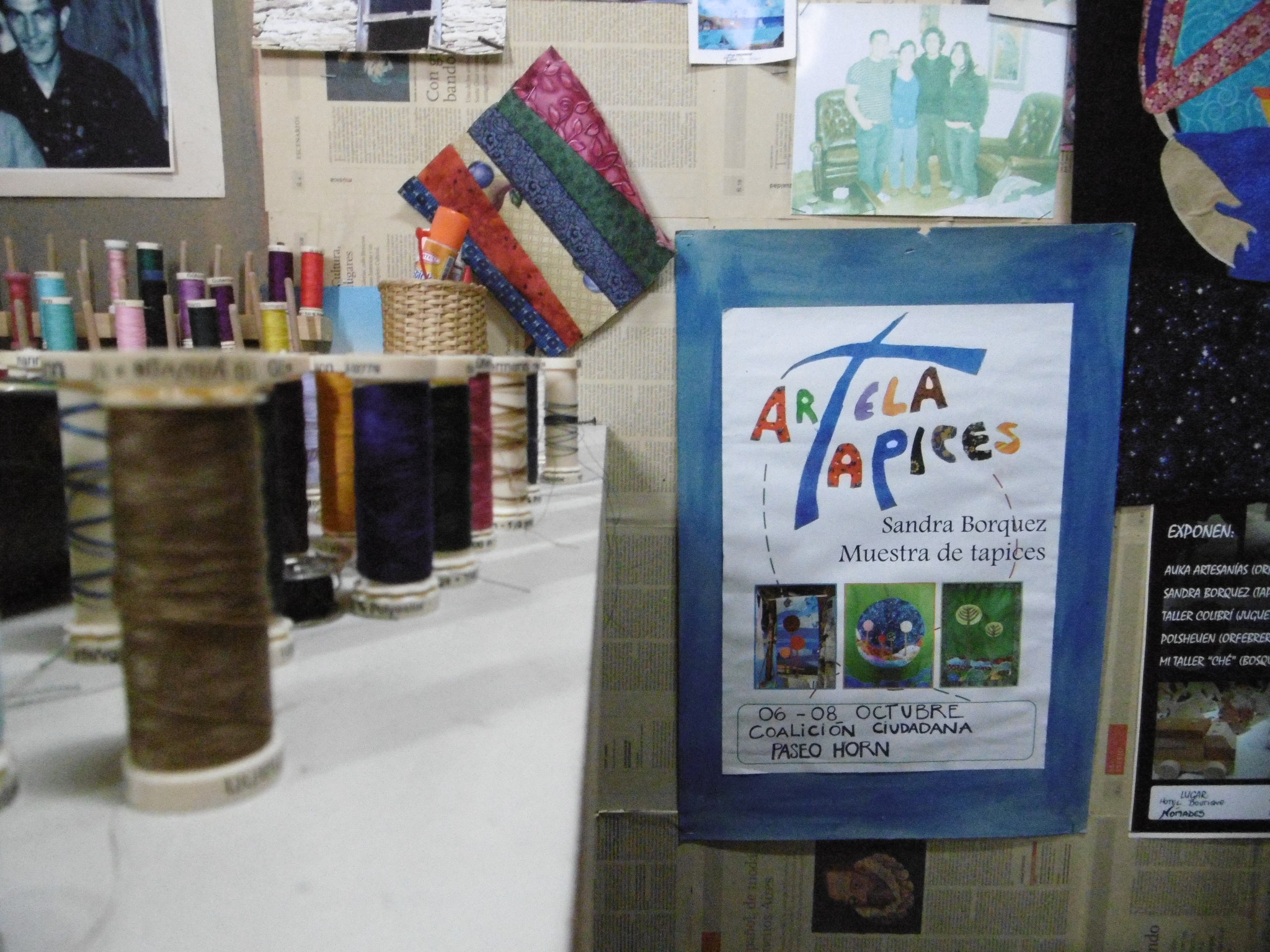
“I began by making bags. I had made one for my daughter and it came out well, so my friends encouraged me, why don’t I make more to sell. I had no money at the time. I was selling things from the house to survive, to pay for lights, food, and firewood. I borrowed money from a friend and I made 10 bags. Marcela had offered to sell them alongside her works at an art fair with no overhead.
None of the bags sold. For a month, I cried almost every night. I was worried because I wanted to pay back the loan my friend had made. Then one day Marcela called and three of the bags had sold; that was how it began. The next day, another sold, then two more. Then they were all gone. I was elated.
Still, I had no money, so to thank them for showing my creations I made a hanging with leftover fabric. It was nothing much; it was small, but they hung it in the gallery as nothing more than decoration. Then one day they called me and said, ‘Sandra, everyone keeps trying to buy that tapestry you made. Have you considered making them?’
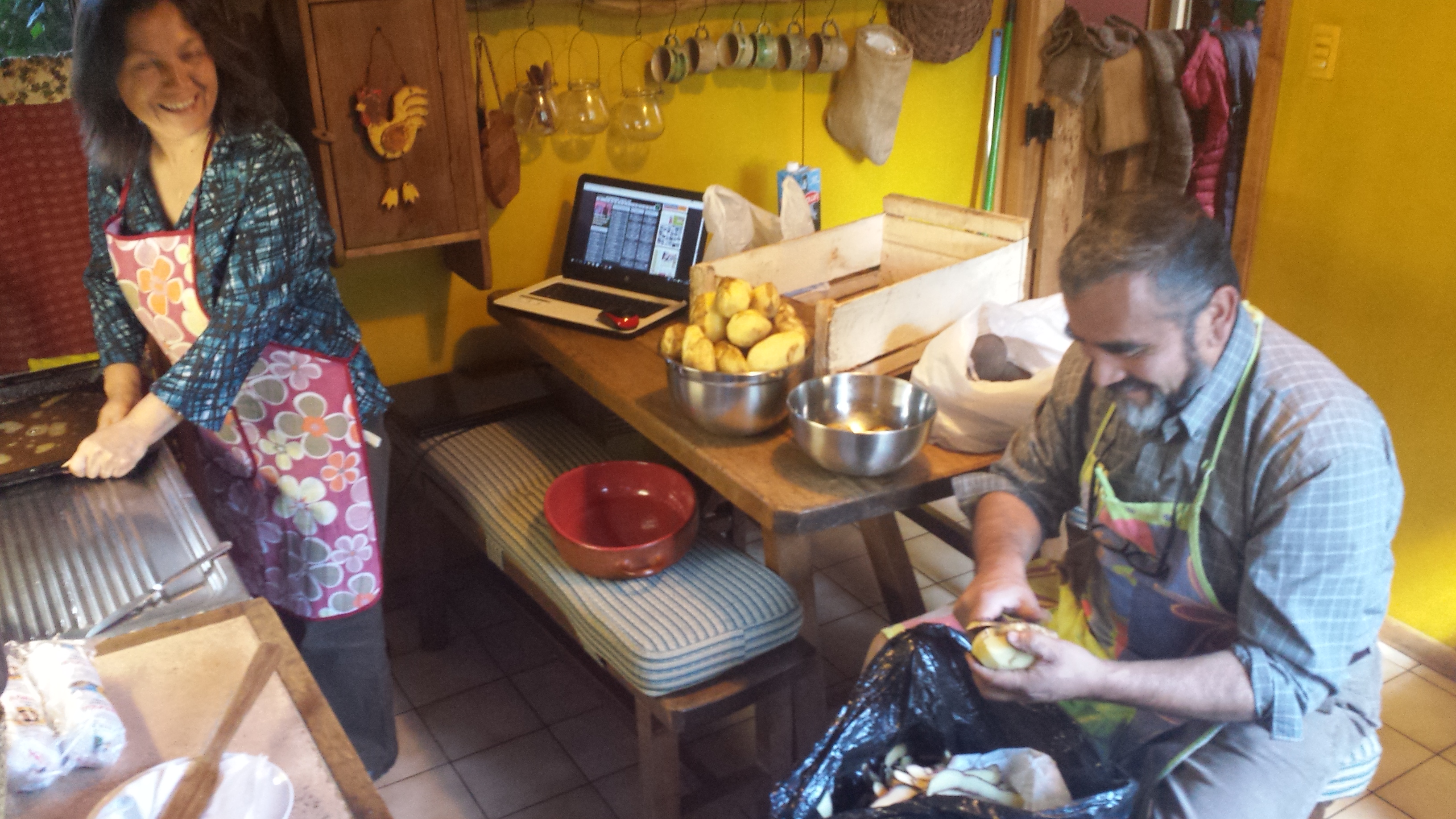
“These were hard times; we could hardly afford what we needed. Some days the kids and I would go over to Marcela’s because they had firewood, and there we would all pass time together around the fire. Sometimes we had enough money to have firewood, so Marcela and her roommate would come over.” Together the small coven of artists fortified one another through thick and thin.
She and Marcela have also shared great joys. Finding footing in their art and communities. Celebrating the birth of Marcela’s son, Leon, and Sandra’s grandson, Bruno. For her exposition “Con el Agua en la Cabeza”, Marcela asked Sandra to present the work. “So I wrote a letter from my grandson to her son.”
Always with her art, Sandra likes to hear the buyer’s perspective of what it means to them. Among the family, they hold the saying that each piece has its owner; it is just a matter of their finding one another. As Sandra put it, “cada uno ve con los ojos que tiene” (each sees with the eyes they have).
This year, for International Women’s Day Sandra was honored at the Aysén Regional Celebration.
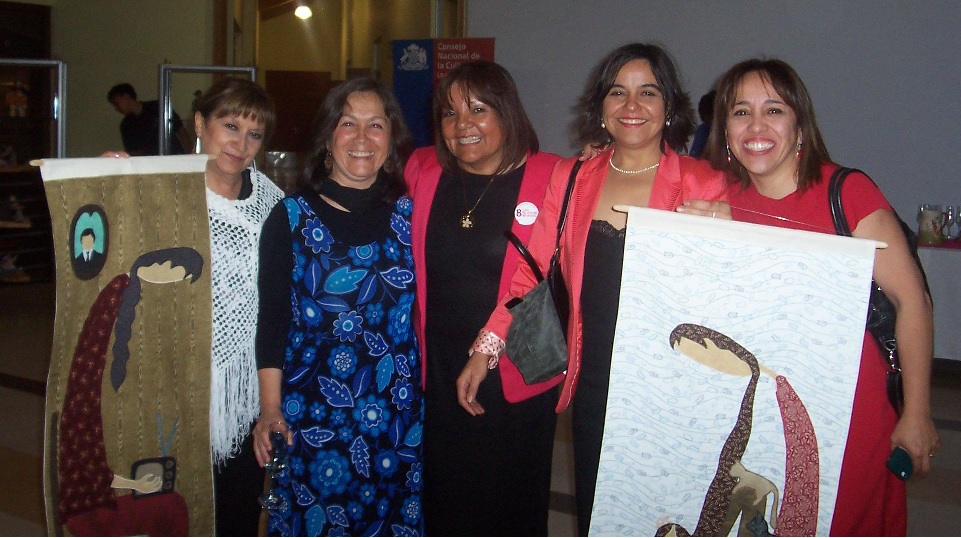
Su historia: Ella puede coser
Traduccion por Henry Tovar
 “Cuando la gente me pregunta lo que hago, digo que soy poeta y casi casi costurera”, Sandra sonríe, ladeando la cabeza con timidez. Francisco se siente orgulloso, su amor es claro en su apoyo del arte del otro. “Francisco es mi fan número uno, el es como mi manager”, se ríen.
“Cuando la gente me pregunta lo que hago, digo que soy poeta y casi casi costurera”, Sandra sonríe, ladeando la cabeza con timidez. Francisco se siente orgulloso, su amor es claro en su apoyo del arte del otro. “Francisco es mi fan número uno, el es como mi manager”, se ríen.
“Mi bisabuela era mapuche. Su nombre era Manque, significa cóndor, ella era fuerte, un líder”. Su abuela inspiro una de las exposiciones de Sandra, “nombres mapuches… una cuestión de género”. La dedicatoria decía:
A mi bisabuela Matilde Manque…
Que no conoció la navidad, los libros ni los zapatos.

Sandra era la única chica en medio de 3 hermanos. “no tengo estudios”, explica no haber terminado la escuela secundaria, “mi madre siempre ha mirado hacia abajo en mi para esto, juzgándome. Ni siquiera podía conseguir un trabajo de salario mínimo sobre la base de mi educación, pero en mi poesía, francisco dice que escribo mejor que algunos que se han graduado.
La cultura del machismo arraigado se puede ver en la forma en que eran alimentados. Mi padre y mis hermanos siempre fueron alimentados en primer lugar, y se alimentaron más. Si alguno de los chicos querían segundas, lo conseguían, pero nunca a mí.
Ahora mi madre por lo general viene a mi casa para el almuerzo. El otro día me llamo y dijo que uno de mis hermanos estaba de visita y que yo debería unirme a ellos. Como nos preparábamos para comer, mi madre le sirvió dos grandes cortes de carne y me dieron a mí una pequeña cartilaginosa pieza. “las mujeres comen menos que los hombres”, mi madre me dijo mientras me servía. Tengo 51 años de edad y me trajo de nuevo a esa misma sensación de niña, ese mismo dolor y rabia”.
La luz de Sandra no se ha atenuado sino mas bien iluminado por las luchas que ha enfrentado. Ella lucho por la independencia para ella y sus hijos después de un divorcio prolongado y enfrentando la discriminación en muchos frentes.

“Empecé por la fabricación de bolsas. Yo había hecho una para mi hija y salió bien, así que mis amigos me animaron, ¿Por qué no hago más para vender? No tenía dinero en ese momento. Estaba vendiendo cosas de la casa para sobrevivir, para pagar por la luz, los alimentos y la leña. Pedí dinero prestado a un amigo e hice 10 bolsas. Marcela se había ofrecido para venderlos junto con sus obras en una feria de arte sin sobrecargo.
Ninguna de las bolsas se vendió. Durante un mes, llore casi todas las noches. Estaba preocupada porque quería pagar el préstamo que mi amigo me había hecho. Entonces, un día llama marcela y tres de las bolsas se habían vendido; así fue como todo comenzó. Al día siguiente. Otra se vendió, luego dos más. A continuación, se habían ido todas. Estaba eufórica.
Aun así no tenía dinero, así que para darle las gracias por mostrar mis creaciones hice un colgante con tela sobrante. No era nada mas, era pequeña, pero lo colgó en la galería como parte de la decoración. Entonces un día me llamaron y dijeron. “Sandra, todo el mundo sigue tratando de comprar ese tapiz que has realizado, ¿has pensado en hacer de ellos?.

“Eran tiempos duros; que apenas podíamos pagar lo que necesitábamos. Algunos días los niños y yo nos gustaba ir a donde Marcela porque tenían leña, y allí pasaríamos el tiempo juntos alrededor del fuego. A veces teníamos suficiente dinero para tener leña, por lo que Marcela y su compañera de cuarto vendrían.” Junto al pequeño aquelarre de artistas fortificados entre sí a través de gruesos y finos.
Ella y Marcela han compartido grandes alegrías. Encontrar el equilibrio en su arte y comunidades.
Celebrando el nacimiento del hijo de Marcela, León, y nieto de Sandra, Bruno. Para su exposición “con el agua en la cabeza”, Marcela pidió a Sandra que presentara el trabajo. “así que escribí una carta de mi nieto a su hijo”.
Siempre con su arte, Sandra le gusta escuchar la perspectiva del comprador de lo que significa para ellos. Entre familia, poseen la palabra que cada pieza tiene su propietario; es solo una cuestión de su búsqueda de unos a otros. Como Sandra dijo, “cada uno ve con los ojos que tiene”.
Este año, para el día internacional de la mujer Sandra fue honrada en la celebración de Aysén Regional

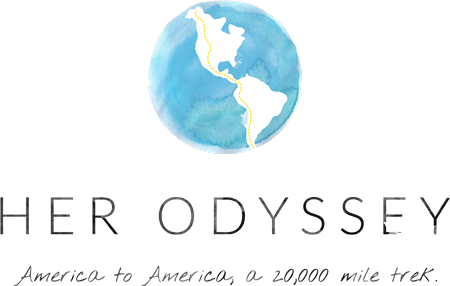





Comments (5)
I *LOVE* the condor tapestry! Thanks for sharing, Fidgit. :-*
So moving. You have really loved the mission you set out to do. We Are So proud to know your and be a part of this. Love Henry and Jaki
I feel truly blessed in every aspect of this. When I feel weary it is that fire and the kindness and support of others which sustains me.
Thanks.
Thank you for following our journey. Your messages are encouraging.